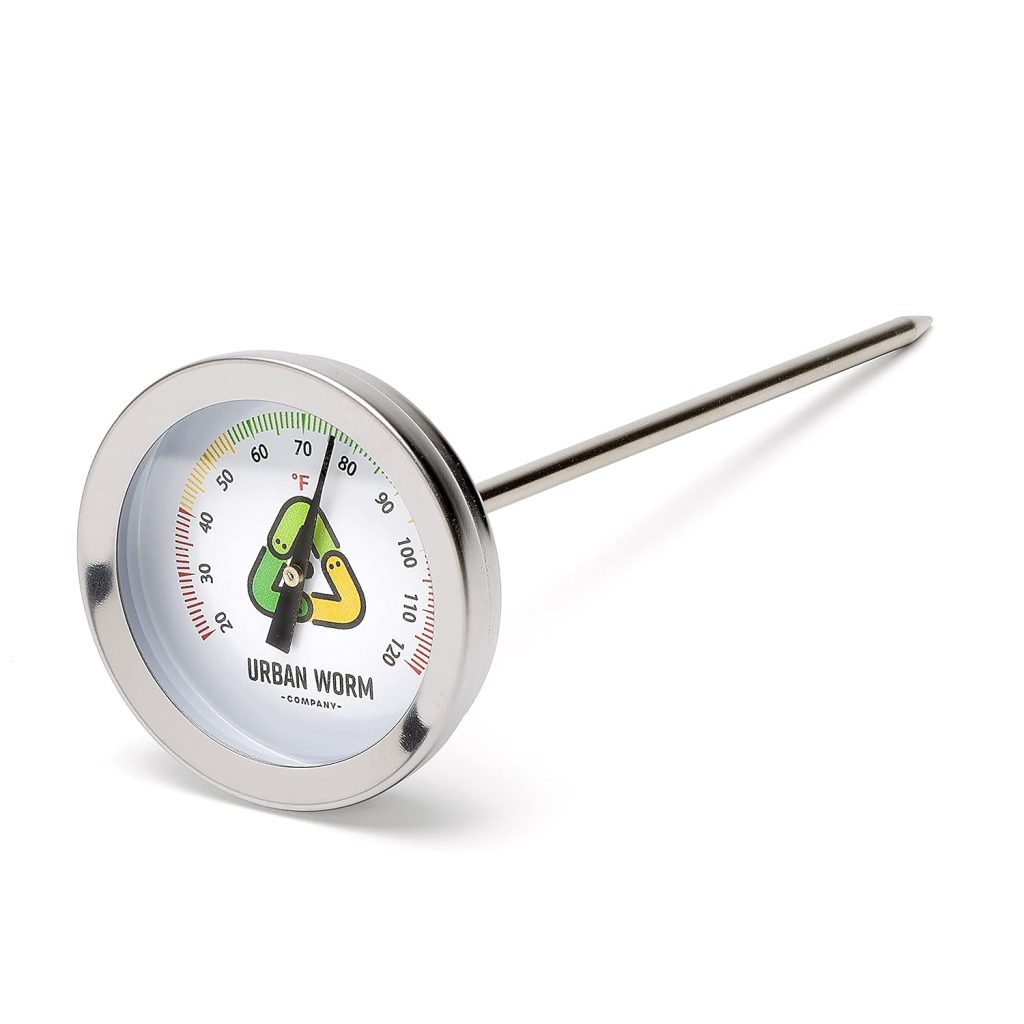Soil Thermometer
*As an Amazon Associate, I earn from qualifying purchases. Please see our disclosure to learn more.
A soil thermometer is a specialized thermometer used to measure the temperature of soil. It typically consists of a long, slender probe that you can insert into the soil with varying depths. Soil thermometers often have temperature markings specific to soil temperature ranges and may come in digital or analog formats.
Soil temperature is an important factor in agriculture, gardening, and landscaping. Knowing the temperature can help ensure seed germination and better plant growth, as well as improved soil microbial activity and nutrient availability.
Benefits of Using a Soil Thermometer
Using soil thermometers offer several benefits, especially for gardeners, farmers, and researchers involved in soil management and agriculture:
- Optimal Planting Times: Soil temperature directly affects seed germination and plant growth. By measuring soil temperature accurately with soil thermometers, gardeners and farmers can determine the best times to plant various crops for optimal growth and yield.
- Preventing Seedling Stress: Seeds planted in soil that is too cold or too warm may experience stress, leading to poor germination rates or weak seedlings. A thermometer helps ensure that seeds are planted in conditions that promote healthy growth. This aids in reducing the risk of stress-related issues.
- Precision in Organic Compost Application: Soil temperature influences microbial activity and nutrient availability. By monitoring soil temperature, farmers can apply compost more precisely, ensuring that nutrients are available when plants need them most. This can lead to more efficient fertilizer use and better plant health.
- Managing Soil Amendments: Some soil amendments, such as compost or organic matter, may release nutrients more effectively at certain temperatures. Using a soil thermometer, you can time the application of these amendments to coincide with optimal soil temperatures.
- Detecting Soil Health Issues: Abnormal soil temperatures can indicate underlying soil health issues such as compaction, poor drainage, or excessive organic matter decomposition. Regular monitoring with soil thermometers can help identify these issues early. It will allow for timely intervention to help improve soil quality and productivity.
- Improving Irrigation Practices: Soil temperature influences water retention and evaporation rates. By monitoring soil temperature, farmers can adjust irrigation schedules to ensure that plants receive adequate moisture without overwatering or promoting waterlogging, which can lead to root rot and other issues.
- Research and Data Collection: Soil temperature data is valuable for research purposes, including studies on climate change, ecosystem dynamics, and agricultural practices. A soil thermometer provides accurate and reliable data for scientific analysis and decision-making.

